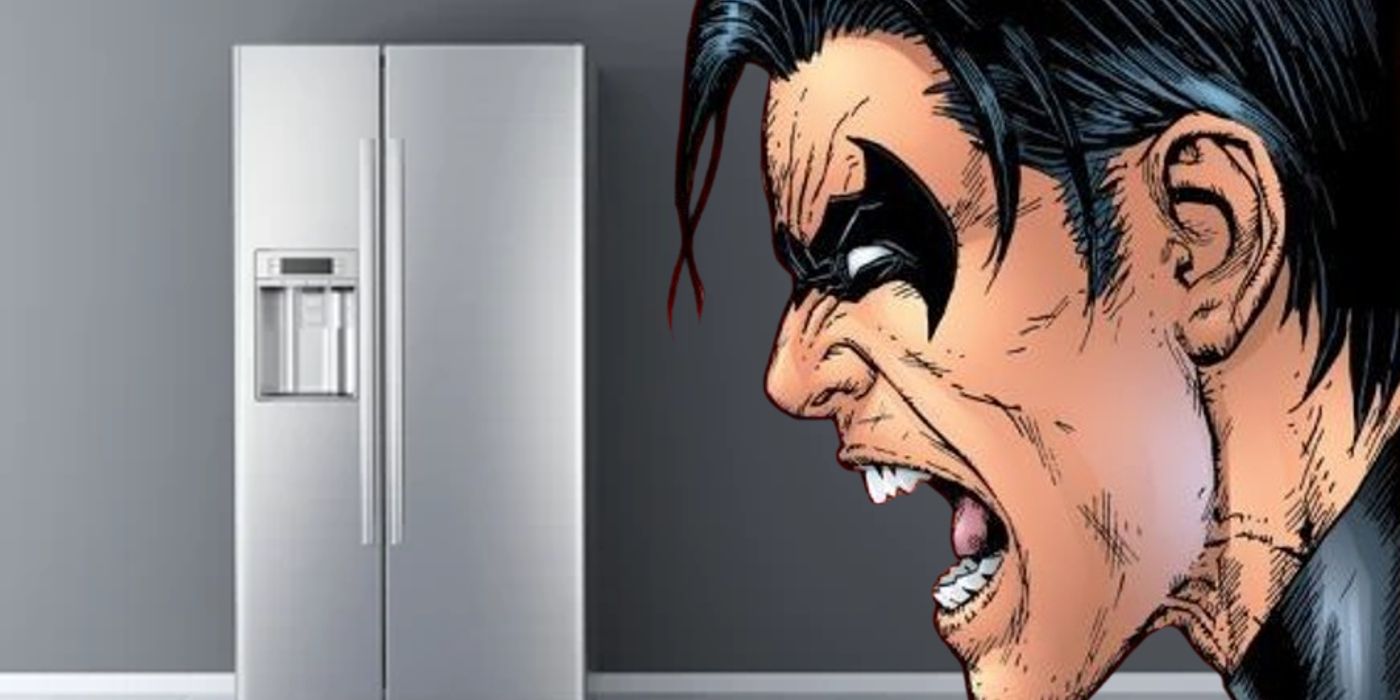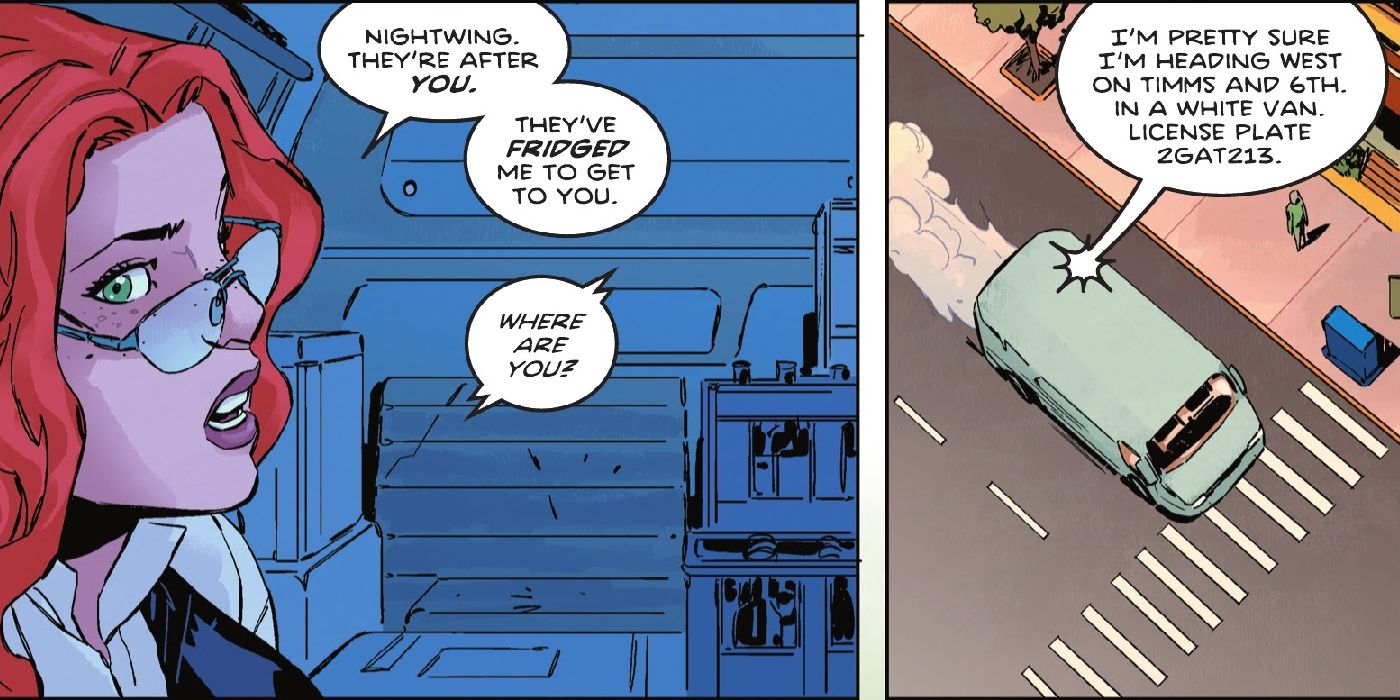Warning: contains spoilers for Nightwing #90
DC Comics' Nightwing has no shortage of important women in his life, and at some point, they’ve each become the quarry of enemies trying to manipulate him. Such is the case in Nightwing #90 by Tom Taylor and Geraldo Borges, when a group of thugs working with KGBeast kidnaps Barbara Gordon to lure Grayson out of hiding. This shallow intimidation attempt leads to Barbara sarcastically citing one of the comics industry's laziest tropes: women in refrigerators.
The phrase may be confusing at first glance, but to comic book readers—and especially DC fans—it’s all too familiar. About ten years after cartoonist Alison Bechdel developed her own litmus for the autonomy of women in fiction, comic writer Gail Simone coined this term at the turn of the century as a way to critique a pattern of misuse when it came to women in comics. It was a direct response to Green Lantern #54 (1994), in which Kyle Rayner discovers the corpse of his love interest, Alexandra DeWitt, stuffed inside of a refrigerator by the villain Major Force. Obviously, this was gruesome in its own right, but the act didn’t spark conversation so much as its implications. Simone and the women with whom she discussed this online realized that throughout fiction, female characters would be killed, kidnapped, or otherwise incapacitated purely to incite a reaction from the male protagonist, furthering his development at the sacrifice of their own. In Nightwing #90, Barbara Gordon is happy to call it out plainly.
Following a failed assassination attempt organized by his nemesis Blockbuster, Dick is whisked away to Keystone City by his best friend Wally West. Barbara is cornered by two men who move her into a refrigerated van at gunpoint but is still able to make remote contact with Nightwing and Flash. While she could easily break out of the trunk, she’s reluctant to make her escape in broad daylight and plainclothes. Exasperated, she tells Dick: “They’ve fridged me to get to you.” It’s funny and the kind of joke that Barbara would make. Though it gets trippy when pondering how, since the phrase is based on a DC comic, Gordon would have learned this phrase? It could simply be a fourth wall break for the audience’s sake. Or maybe all of DC’s heroes started referring to this phenomenon as “fridging” behind Rayner’s back, but that would be a pretty despicable way to treat his trauma.
Of course, Barbara has been targeted by villains seeking to break the men in her life before. Killing Joke writer Alan Moore has expressed regret over the direction of that comic overall and Barbara’s infamous injury in particular. Shock value can occasionally be beneficial for deepening the stakes of a narrative, but one must always weigh the potential cons. Barbara became collateral damage in a story that had little to do with her otherwise, which can and has been reinterpreted as needless victimization. With all this in mind, it’s probably extra poignant that the joke came from Barbara rather than anyone else.
Her character’s personal experience aside, this offhand comment is right in line with the tone that Taylor has established—a tone that has seen this become one of Dick Grayson’s most popular adventures yet. It’ll take a lot more than KGBeast and a rented van to take Barbara Gordon out of commission, and anyone who tries it will answer to Nightwing.


